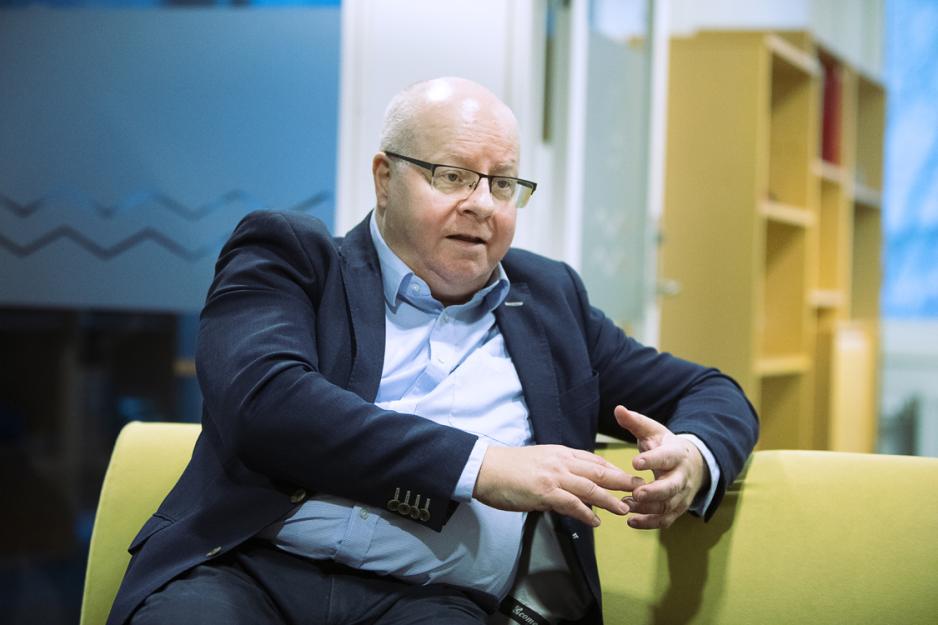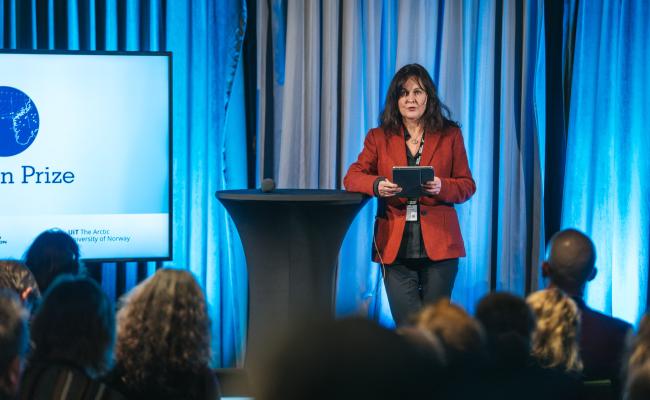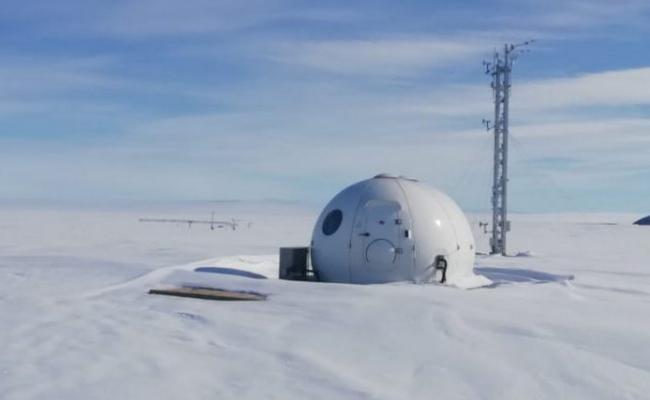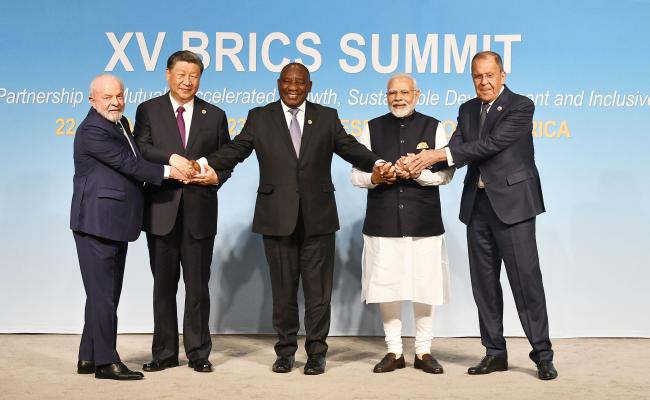Seeking Consensus for More Efficient Arctic Cooperation

Morten Høglund, Norway's Arctic Ambassador and Chair of the Senior Arctic Officials in the Arctic Council during the Norwegian chairship. (Photo: Hogne Bø Pettersen/High North Center)
Russia suspends payments to the Arctic Council until it resumes "full-fledged work." Norway seeks to achieve agreement among all member states on more efficient interaction. "We have recently sent out a proposal for new guidelines," states Morten Høglund, who leads the council under Norway's chairship.
On Wednesday, Russia announced it would suspend its economic contribution to the Arctic Council.
"This decision will apply until the council resumes its full-fledged work and corresponding interaction between all its members, including project activities," said Nikolay Korchunov, Russia's Arctic Ambassador, to TASS.
More specifically, Moscow is halting its co-funding of the Arctic Council Secretariat, informs Morten Høglund to High North News. He is Norway's Arctic Ambassador and Chair of the Senior Arctic Officials in the Arctic Council under the Norwegian chairship.
"This will not affect the council's work in the short term. However, a delay in payments in the long-term can mean fewer resources for the Arctic Council Secretariat in Tromsø and less opportunity to support the work," Høglund writes in an e-mail.
A memory refresh
– The Arctic Council is an intergovernmental forum for cooperation between the region's eight states, indigenous peoples, and other inhabitants in joint Arctic matters – particularly within sustainable development and climate change.
– After Russia's full-scale invasion of Ukraine in February 2022, the council's work was temporarily paused by the seven Western Arctic states.
– On its side, the council's Russian chairship (2021-2023) continued with its program with participation from "friendly countries," such as China and India, which are observer states in the council.
– In June 2022, the seven western Arctic countries resumed some project work within the Arctic Council without Russian participation.
– Norway took over the chairship from Russia on May 11th, 2023, and got to work on carving out future solutions for the council.
– In the late summer of 2023, all the Arctic countries agreed on guidelines to resume activities of the working and expert groups – in which the council's main work normally takes place. The guidelines outline that the cooperation will be based on written procedure – a laborious way of working.
Proposal on 'hearing'
Can you say something about the current dialogue with Russia and the other member states around fully resuming the Arctic Council's work?
"A natural part of holding the chairship is having contact with all the member countries, including Russia, and we are aware of the Russian position," answers Høglund and continues:
"Lately, we have worked to reach an agreement among the member countries on more efficient working methods, and we have recently sent out a proposal to all the member states on new guidelines allowing for better working conditions for the council's working and expert groups."
To what degree have the working and expert groups resumed their activities with written procedures since this was made possible in the late summer? Have they managed to pick up existing projects, including collaboration with observers, as well as suggest new ones?
"A lot of good work is taking place in the Arctic Council, and many projects are underway. Decisions are being made in the working groups with all Arctic states in consultation with the indigenous peoples' organizations. The observers are participating in projects they are involved in, as before. The aforementioned proposal will entail even stronger observer participation," he maintains.
The Arctic Council is still functioning.
Additional Russian initiatives
The aforementioned Russian announcement follows several recent statements from official Russian quarters regarding the Arctic Council.
"We must keep all options open for foreign policy maneuvring, including withdrawal from the Arctic Council," said Ambassador Korchunov earlier in February.
He and Russian ministers articulated the same message several times in 2023. This month, other voices have also made statements:
Russia continues its participation in the Arctic Council but will make "special decisions" if it were to stop considering the council as "effective and fair," emphasized Dmitry Peskov, Press Secretary for President Vladimir Putin, according to TASS.
Whether or not the membership is appropriate will be reconsidered "if the council develops into an institution that is unfriendly toward Russia," added Maria Zakharova, Russian MFA Spokeswoman. This was also reported by TASS.
At the same time, she states that alternative forums are not currently being considered.
"It is not necessary to talk about any possible replacements for this organization, at least not at this stage. This is because the Arctic Council – although it works at the slowest speed possible – still functions and is a multilateral instrument to support cooperation in areas that were determined at the ministerial meeting in Reykjavik in May 2021, as well as at the last meeting in Salekhard in May last year," said Zakharova.
"Wants real cooperation"
Russia's decision to suspend payments to the Arctic Council is not as dramatic as it may sound, writes Jennifer Spence, PhD, Arctic Initiative Senior Fellow, Harvard Kennedy School's Belfer Center, in an op-ed on Thursday. She has both studied the council and worked for it.
Spence rightfully assumes that the situation concerns the Russian contribution to the secretariat's budget, which, according to her, amounts to around eight percent – and does not exactly amount to "a death knell" for the forum.
"Next, I would argue that Russia's announcement demonstrates that they want real cooperation through the Arctic Council, not just the symbolic fig leaf that the Council is at risk of becoming. With other multilateral institutions, they have cut ties completely. Here, we see a measured approach – a "pause" on funding that is more a symbolic gesture than a heavy blow," she maintains.





